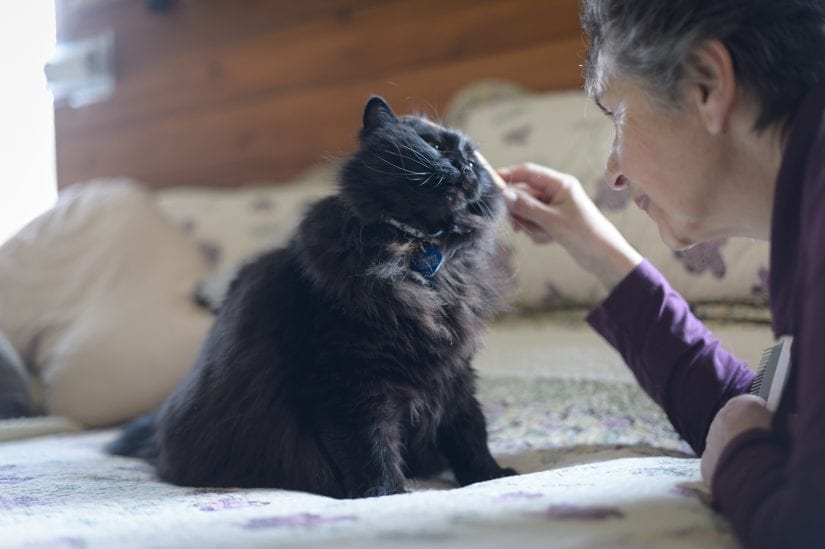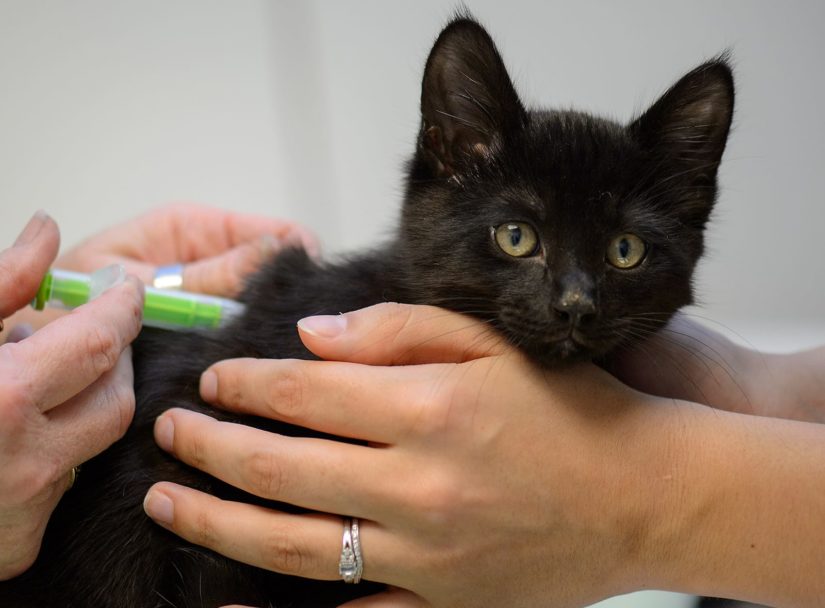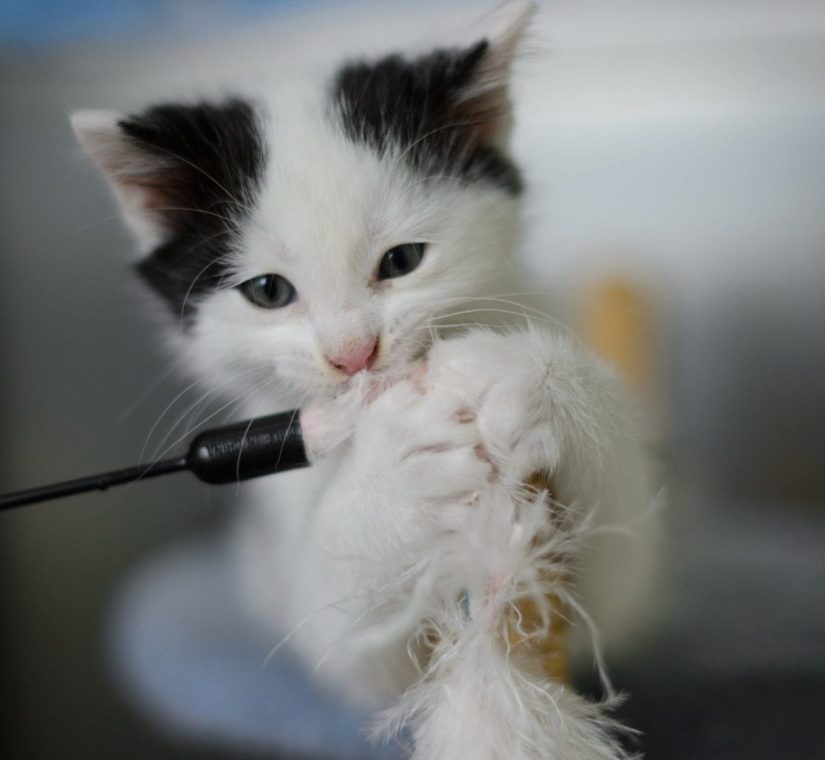Cats are wonderful companions. Each has a unique personality – just like people!
Some are shy and quiet while others are outgoing and social; but no matter the personality of your cat, they always rely on you as a guardian to provide a good home with what they need to be happy. Remember, a healthy cat is a happy cat!
Typical life span for a cat
- 13 – 20 years
How to keep your cat happy and healthy

Cat food and feeding
Kittens need good quality kitten food when they’re weaned. Adult cats do best on a mixture of good quality dry kibble and canned food. Feeding guidelines provided on the bag can help you determine how much your kitten or cat should eat in a day.
It is common for most cats to eat two to three meals a day. Feed the last meal of the day right before bedtime. An adult cat will sleep throughout the night. Kittens may need more meals a day.
Some cats need special diets. Ask your vet for a recommendation for your cat.
Your cat must have access to fresh water all the time. Change the water daily and wash out the bowl regularly.

Cat grooming, teeth and nail trimming
Choose a pet service business that prioritizes your cat’s welfare. Learn what to ask so you can confidently choose the right pet care provider.
Grooming
Brush your cat on a regular basis, especially if they are long-haired. Regular brushing prevents hair from matting and removes loose hair. It also will help with hairballs.
Teeth
To keep your cat’s teeth healthy and tartar free, they need to be brushed daily. Buy a special toothpaste and finger brush from your local pet supply store or at your vet clinic. Do not use human toothpaste.
Nails
Nails need regular trimming, usually once a month or as needed. Take care not to cut the blood vessel (the quick) that runs through each nail. Cats who go outside do not need their nails trimmed. They need their nails to climb and defend themselves. If you prefer not to cut your own cat’s nails, a veterinarian can do this for you for a small fee.
Declawing cats
The practice of declawing cats is banned in B.C., unless it is necessary as an appropriate medical therapy. It is also banned in Australia, New Zealand, Israel, Brazil, the United Kingdom, parts of Europe and some cities in California.
Cats’ nails are not like fingernails — they’re attached to the bone. Declawing is a serious surgery. It’s like removing a part of your finger at the knuckle.
Read the BC SPCA Position Statement on Cosmetic and Other Non-Therapeutic Alterations (PDF).
*If your cat is scratching furniture, learn what to do.

Identification (ID) for your cat
Nobody plans to lose a pet. Prepare for the unexpected and ensure your cat has two forms of identification.
Indoor cats vs outdoor cats
The BC SPCA recommends that cats be indoors, however, some cats get frustrated indoors and may enjoy outdoor time. Whether you choose to let your cat out or keep them in, know how to provide them with the best environment to keep them happy and safe.

Medical care is important for your cat
Take your cat to see a vet when you first get your cat. After the initial visit with the vet, you may only need to go back once a year for a check-up and vaccinations. Kittens will need to go back more often at first for vaccines.
It is also important to have your pet spayed or neutered to prevent unwanted litters. There are also many behavioural and health benefits to sterilization. Learn more about the benefits of spaying or neutering your pet.
Over time, watch for lumps and bumps on your pet. Also pay attention to signs of your cat not eating or a change in their behaviour. If you notice anything different talk to your vet.
Find a veterinarian in your area.
Learn how to make your kitten or cat’s vet visit less stressful.

Playtime is a special time with your cat
Cats love to play, explore, run around, use a scratching post and spend time with you. These are all essential activities for cats. Set up your home so your cat can explore, run and scratch on a scratching post.
Make time in your day to play with your cat with a variety of toys, rather than your hands. Learn what to do if your cat or kitten is biting and scratching your hands.

Further resources for cat care and behaviour issues:
Welcoming a new cat into your home
Introducing your new cat to your resident cat
